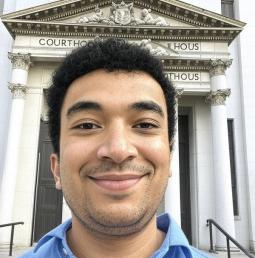Drug Dealer Jailed For Exploiting Teens In Modern Slavery Case
Teen boys were trafficked to move heroin and cocaine by rail. County Lines gang member Lakan Illsley jailed for 10 years after police caught them at a station.
A County Lines drug dealer who exploited teenage boys to move heroin and cocaine across the country has been jailed for 10 years.
Lakan Illsley, 28, of Beresford Close, Burton-on-Trent, was sentenced at Stafford Crown Court on Tuesday 20 May following two separate prosecutions.
He had earlier pleaded guilty to two counts of modern slavery and conspiracy to supply Class A drugs, after a British Transport Police investigation uncovered his use of teenagers to carry drugs and cash on the rail network.
Officers stopped two 16-year-old boys at Blackpool station in December. Both were more than 130 miles from home. One was carrying 50 wraps of cocaine, 39 wraps of heroin, £300 in cash and a burner phone. The other had a knife.
Phone evidence linked Illsley to the operation. He was arrested at his girlfriend’s address.
He was sentenced to seven years and six months for the BTP offences, and a further two years and six months for a separate Staffordshire Police prosecution for supplying crack cocaine.
The two boys were safeguarded and returned home.
Detective Superintendent Craig Payne said Illsley had “coerced and exploited children,” adding that police would “relentlessly pursue those who target the vulnerable.”
Access to the Law: Why Are Some Jail Sentences Served Consecutively?
In this case, Lakan Illsley received two separate prison terms: one for exploiting children through a County Lines operation, and another for a different drug supply offence investigated by Staffordshire Police. The judge ruled that these sentences should be served consecutively, meaning one after the other, rather than at the same time.
Under English law, judges can impose consecutive sentences when a person is convicted of separate crimes, particularly if the offences are distinct in time, location, or victims. The principle is that offenders should be held accountable for the full extent of their criminal conduct, not just a portion of it.
Had the judge ordered the sentences to run concurrently, Illsley would have served both terms at the same time — effectively reducing the total time spent in prison. By ordering consecutive sentences, the court ensured that each crime was punished separately, resulting in a total jail term of 10 years.
This approach reflects the seriousness of both the child exploitation and drug supply offences, and reinforces the justice system’s commitment to protecting vulnerable people and punishing persistent offenders.
Well, that’s all for now. But until our next article, please stay tuned, stay informed, but most of all stay safe, and I’ll see you then.



